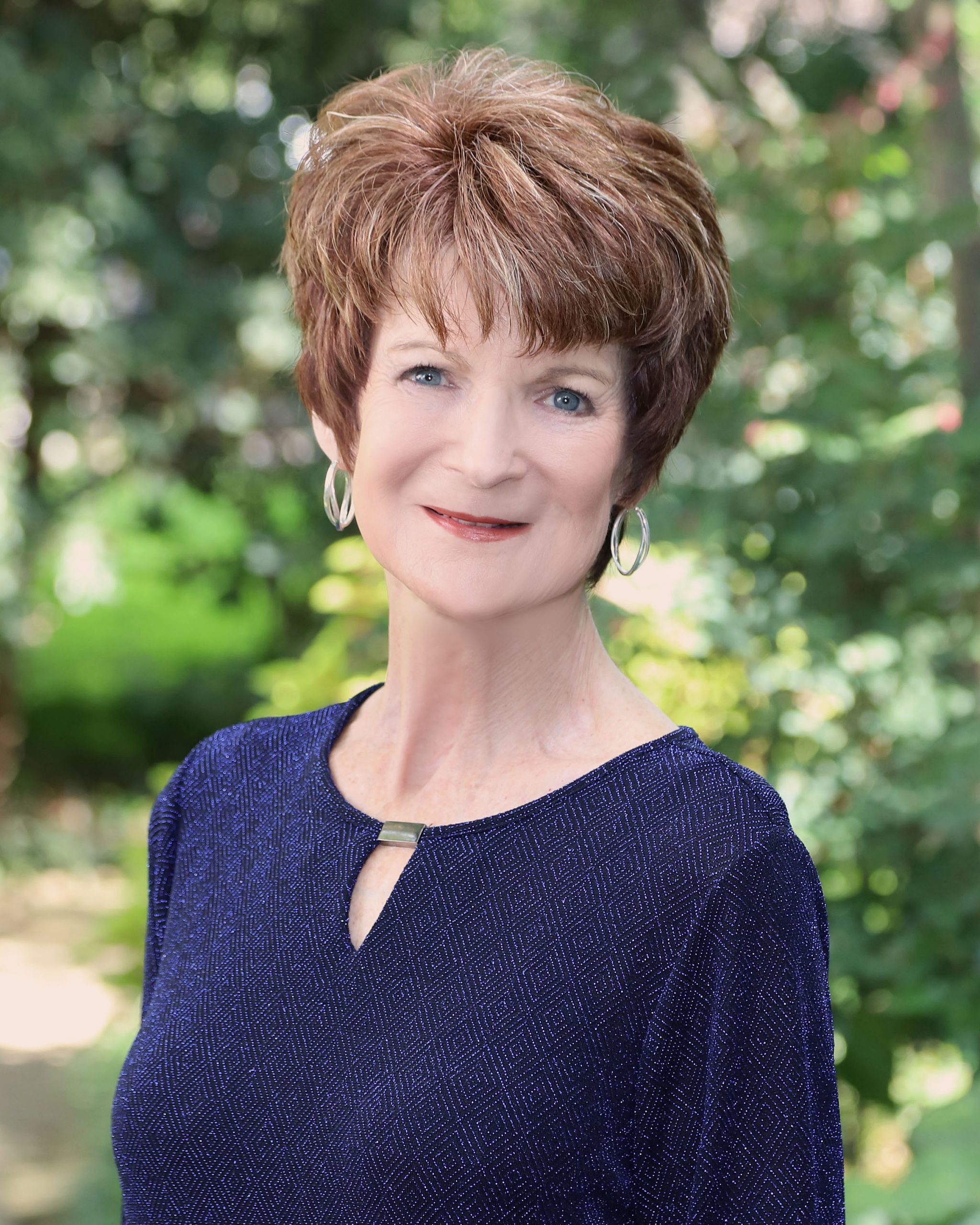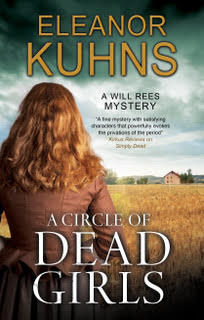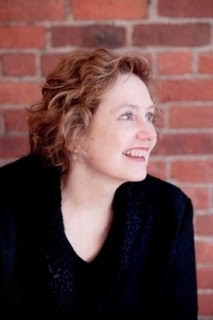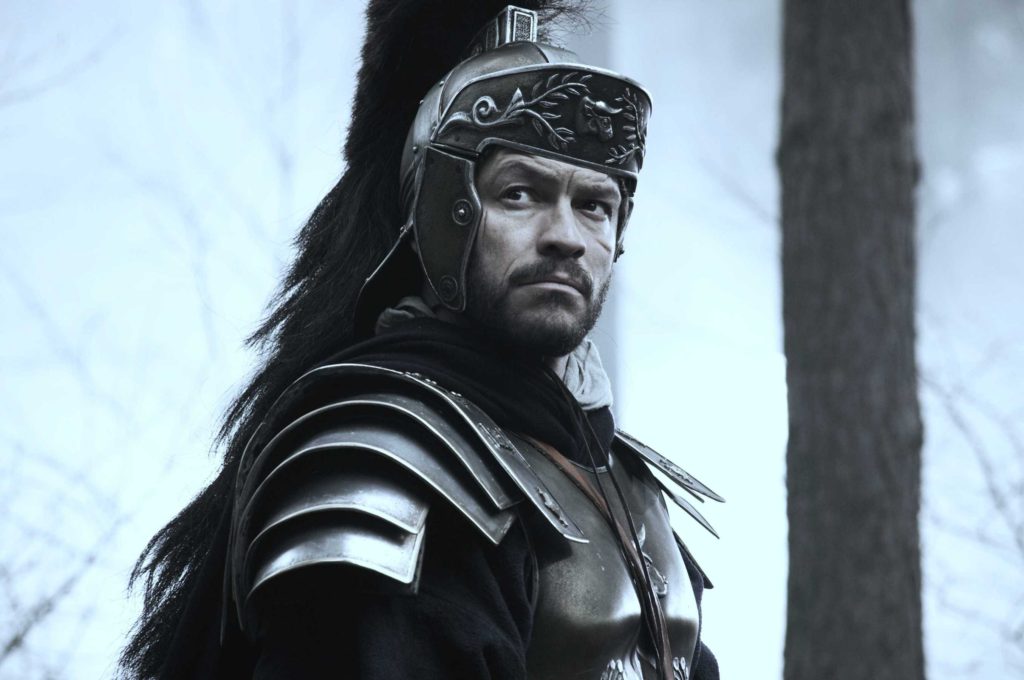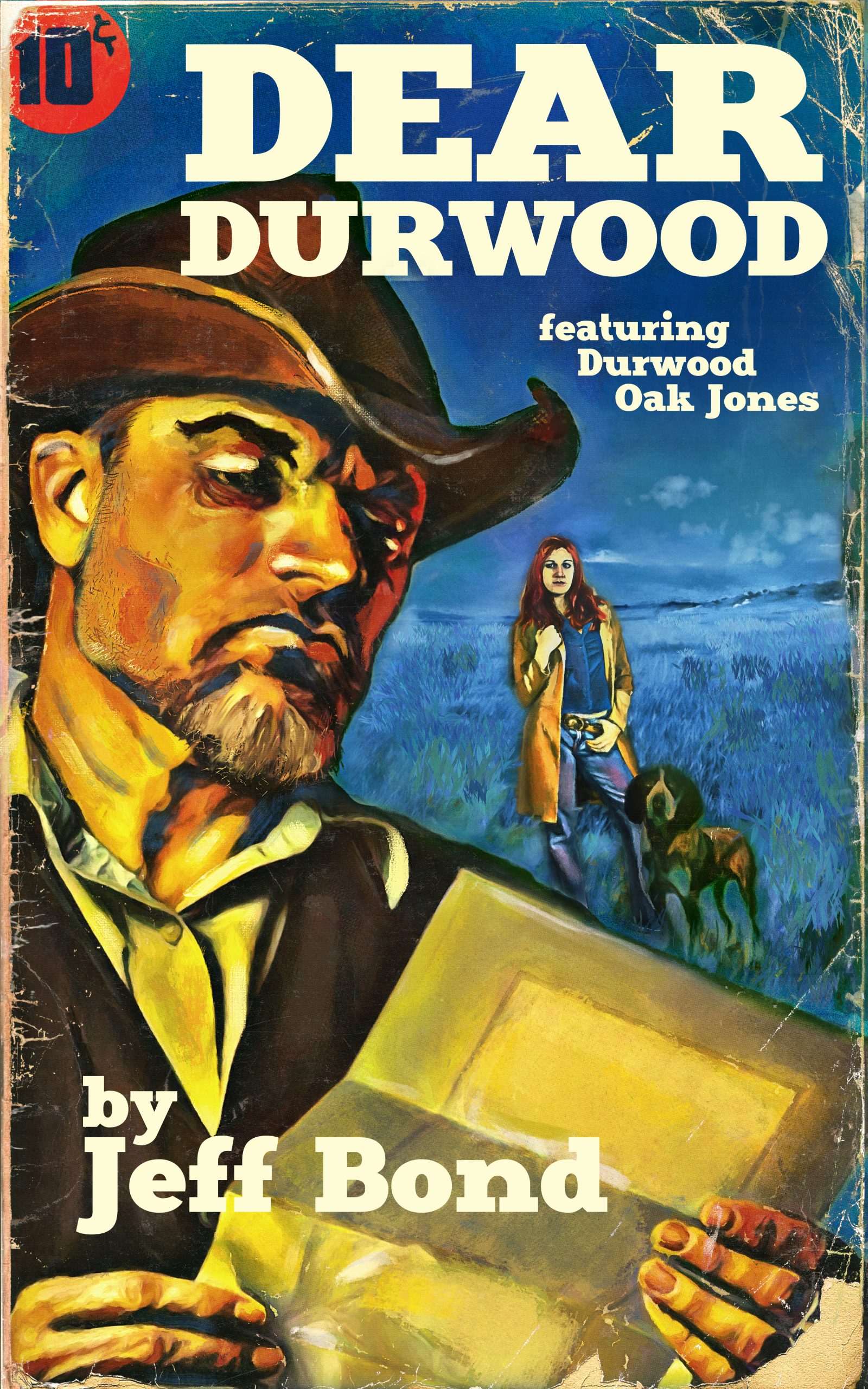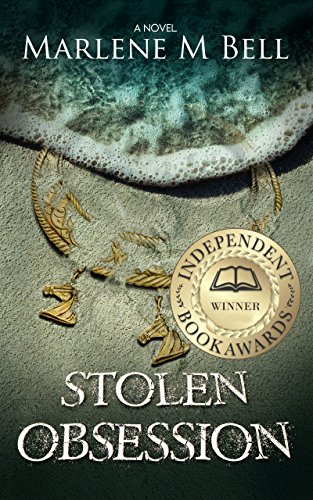Durwood Oak Jones is a man of few indulgences. One he does allow is a standing ad in Soldier of Fortune magazine soliciting “injustices in need of attention.”
This month’s bundle of letters includes one from Carol Bridges, mayor of the dusty, blue-collar town of Chickasaw, Texas. For nearly a century, Chickasaw has relied on the jobs and goodwill of Hogan Consolidated, a family-run manufacturer of industrial parts. Now East Coast lawyers and investment bankers have taken aim at the company. The citizens of Chickasaw fear it may be acquired or bankrupted, leading to massive layoffs — effectively destroying the town.
Durwood and his trusty bluetick coonhound, Sue-Ann, fly to Texas to see what can be done. They find a young CEO born with a silver spoon in his mouth. Factory workers with hammers. A good woman, Carol Bridges, who knows her town is being cheated but can’t get to the bottom of how. And lawyers.
Dirty, good-for-nothing lawyers.
If you like a man with attitude, Durwood Oak Jones is your man. His sidekick, Sue-Ann, could also work up a bit of attitude.
Durwood might be a country boy from West Virginia, but he is no simpleton. He can take down the best of the opposition. Sit back and watch him operate.
It’s an easy read of only 184 pages, but it’s certainly satisfying. Thank you, Mr. Bond. It’s been good to see someone from Third Chance Enterprises go solo. I’m partial to Durwood. I’m looking forward to Molly’s solo in The Begonia Killer.
Dear Mr. Oak Jones:
I am Carol Bridges, mayor of Chickasaw, Texas. We are located in the western part of the state, Big Bend Country if you know it. I thank you in advance for considering my injustice.
Chickasaw is the home of Hogan Consolidated, a family-run manufacturer of industrial parts. Hogan employs 70 percent of able-bodied adults in Chickasaw, and its philanthropy has sustained the town for ninety years. It’s due to the Hogan family we have an arts center and turf field for youth football.
Recently, East Coast lawyers and investment bankers have taken aim at the company. Multi-million dollar claims have been filed, accusing Hogan of putting out defective parts. It’s rumored the company will be acquired or liquidated outright. Massive layoffs are feared.
My constituents work hard, Mr. Jones. They have mortgages and children to feed. I have tried to find answers about the Hogan family’s intentions, to see whether I or the town can do anything to influence the course of events. Jay Hogan, the current CEO, does not return my phone calls—and is seen dining at sushi restaurants in El Paso (85 miles away) more often than in Chickasaw. I have gotten the runaround from our state and federal representatives. I believe it’s their fundraising season.
As mayor, I have a duty to explore every possible solution to the challenges we face. I do not read Soldier of Fortune regularly, but my deputy police chief showed me your ad soliciting “injustices in need of attention.” I feel certain injustice is being done to Chickasaw, though I can’t as yet name its perpetrator and exact nature.
Alonso (our deputy chief) knows you by reputation, and assures me these details won’t trouble you.
Thank you sincerely for your time,
Carol Bridges
Mayor of Chickasaw, TX
Chapter One
Durwood got to the Chickasaw letter halfway through the sorghum field. He was flipping through the stack from the mailbox, passing between sweet-smelling stalks. Leaves brushed his bluejeans. Dust coated his boots. He scanned for clumps of johnsongrass as he read, picking what he saw. The first five letters he’d tucked into his back pocket.
The Chickasaw letter he considered longer. Steel-colored eyes scanned left to right. He forgot about the johnsongrass. An ugliness started in his gut.
Lawyers.
He put the letter in his front pocket, then read the rest. The magazine forwarded him a bundle every month. In September, he’d only gotten three. At Christmas time, it seemed like he got thirty or forty. Folks felt gypped around the holidays.
Today, he read about two brothers who didn’t steal a car. About a principal who got fired for being too aggressive fighting drugs in his school. About a bum call in the Oregon state Little League championship twenty years ago. About a furnace warranty that wasn’t worth the paper it was printed on.
Durwood chuckled at the Oregon letter. This one had been writing in for years. Maybe he figured Durwood didn’t read them, figured some screener only put a couple through each go-round and one of these days they’d sneak his through.
But Durwood did read them. Every last one.
He put the letter about the principal in his front pocket with the Chickasaw letter.
Off his right side, Sue-Ann whimpered. Durwood turned to find the bluetick coonhound pointing the south fenceline.
“I see,” Durwood said, of the white-tail doe nosing around the spruces. “Left my gun back at the house, though.”
Sue-Ann kept her point. Her bad hip quivered from the effort. Old as she was, she still got fired up about game.
Durwood released her with a gesture. “What do you say to some bluegill tonight instead? See what Crole’s up to.”
Durwood called Crole from the house. Crole, his fishing buddy who lived on the adjacent sixty acres, said he was good for a dozen casts. They agreed to meet at the river dividing their properties. Durwood had a shorter walk and used the extra time to clean his M9 semiautomatic.
Leaving, he noticed the red maple that shaded the house was leafing out slow. He examined the trunk and found a pattern of fine holes encircling the bark.
That yellow-bellied sapsucker.
Durwood wondered if the holes were related to the tree’s poor vigor.
Out by the river, Crole limped up with his jug of moonshine, vile stuff he made from Jolly Ranchers.
They fished.
Sue-Ann laid in the mud, snoring, her stiff coat bristling against Durwood’s boot. The afternoon stretched out, a dozen casts becoming two dozen. Then three. In the distance, the hazy West Virginia sky rolled through the Smokies. Mosquitoes weren’t too bad, just a nip here and there at the collar.
Durwood thought about Chickasaw, Texas. He thought about East Coast lawyers. About the hardworking men and women who’d elected Carol Bridges to be mayor and stick up for them.
He thought about that CEO picking up raw fish with chopsticks in El Paso.
He thought, too, about the principal who’d been fired for doing right.
Crole said, “Got some letters today?”
Durwood said he had.
Crole grinned, showing his top teeth—just two, both nearly black. “Still running that ad in Soldier of Fortune?”
Durwood lowered the brim of his hat against the sun. “Don’t cost much.”
“They give a military discount?”
Durwood raised a shoulder. He’d been discharged from the Marines a decade ago. He didn’t accept handouts for his service.
Crole nodded to the bulge in his pocket—the letters. “Anything interesting?”
“Sure,” Durwood said. “Plenty.”
They fished into twilight. Durwood caught just five bluegill. Crole, twenty years his senior and luckier with fish, reeled in a dozen, plus a decent-size channel cat despite using the wrong bait. The men strung their catches on a chain. The chain rippled in the cool, clear water.
The Chickasaw job appealed to Durwood. The opportunity to fight crooked lawyers, do something about these Wall Street outfits that made their buck slicing up American companies, putting craftsmen out of work until every last doodad was made in some knockoff plant in China.
Still, Durwood had trouble imagining the case. What would he do, flip through documents? Sit across a folding table from men in suits and ask questions?
Then he thought about the principal. About those gangs the letter had mentioned, how you could look out the windows of the dang school and see drug dealers on street corners. Intimidators. Armed thugs.
Durwood had an easy time imagining that case.
The sky had just gotten its first purple tinge when Durwood lost his bait a third time running.
“These fish.” He held his empty hook out of the water, shaking his head.
Crole said, “There’s catfish down there older than you.”
“Smarter, too,” Durwood said.
Still, the five bluegill would be enough for him and Sue-Ann. Durwood unclipped the fishes’ cheeks from the chain and dropped them in a bucket.
Back at the house, Durwood spotted the yellow-bellied sapsucker climbing the red maple. Not only was he pecking the tree, the ornery creature kept pulling twigs from the gray squirrels’ nest, the one they’d built with care and sheltered in the last four winters.
“Git down!” Durwood called.
The sapsucker zipped away to other antics.
Inside, Durwood scaled and beheaded the bluegill. Then he fried them in grease and cornmeal. Sue-Ann ate only half a fish.
Durwood moved the crispy tail under her nose. “Another bite?”
The dog sneezed, rattly in her chest.
Durwood rinsed his dishes and switched on a desktop computer. He looked up Chickasaw. There was plenty of information online. Population, land area. Nearly every mention of the town made reference to Hogan Consolidated. It looked like Hogan Consolidated was Chickasaw, Texas, and vice versa.
On the official municipal website, he found a picture of Carol Bridges. She wore a hardhat, smiling among construction workers.
Handsome woman. Warm, lively eyes.
Next, Durwood looked up the fired principal. The man lived and worked in upstate New York. For a few weeks, his case had been all over the local news there. A city councilman believed he’d been railroaded. Nineteen years he’d served the school district without prior incident. The only blemish Durwood found was a college DUI.
Durwood hadn’t started with computers until his thirties. His calloused fingers regularly struck the keys wrong, but he managed. This one he’d gotten from the Walmart in Barboursville, forty-nine bucks on Black Friday. It had its uses. A tool like any other.
“Well?” he said aloud, even though Sue was out on the porch. “Looks like a tossup.”
Durwood changed computer windows to look again at Carol Bridges. Then changed back to the principal.
At the bottom of the news story about the principal, he noticed a bubble with “47 comments” inside. He knew people who spouted off online were unreliable and often foolish. He clicked anyway.
“Good riddance, got what he deserved!”
“TOTAL RACIST WINDBAG, glad they fired him.”
Durwood read all forty-seven comments. Some defended the man, but most were negative.
It was impossible to know how much was legitimate. Durwood left judging to Him, and Him alone.
But Durwood did know that the petitioner, the one who’d written the letter to Soldier of Fortune, was the principal himself. Not some third party. Not an objective observer.
What had seemed like a case of obvious bureaucratic overreach suddenly looked less obvious.
Now Sue-Ann loped in from the porch. Appalachian air followed her inside, nice as perfume. Sue settled at Durwood’s feet, wheezing, rheumy eyes aimed up at her master.
He said, “What do you say, girl. Up for seeing the Lone Star State?”
The dog sat up straight, responding to the action in his voice. The effort made her mew. That hip.
Durwood laid his thumb down the ridge of the dog’s skull. He felt pained himself, thinking of documents, folding tables, and men in suits.
Chapter Two
It was a healthy drive, nearly two thousand miles, to see this Carol Bridges. Doubts remained in Durwood’s mind. Petitioners he met through the Soldier of Fortune ad fell through sometimes. It would turn out their letter was misleading or flat false. Other times the injustice had taken care of itself by the time Durwood arrived.
Once he’d driven clear to Nebraska to help a man whose pride and joy, a 1917 Ford Bucket T he’d restored from salvage by hand, had been denied roadworthiness by some city councilman with a grudge. When Durwood knocked on his door and asked about the hot rod, the man said, “The Ford? Guy made me an offer, I sold her a few weeks back.”
Durwood decided it was worth the trip to hear Carol Bridges out. If he didn’t like what she said, he’d tip his hat, get back in the Vanagon, and drive home.
Crole observed, “You could call.”
Durwood was humping supplies into the van. “Folks can say anything on the phone.”
The older man looked to the horizon, where the sun would rise soon. His pajamas dragged the dirt, and he held his jug by two fingers. “They can say anything to your face, too.”
Durwood whistled to Sue-Ann.
“It’s different,” he said as the dog climbed in. “Lay off that shine, hm?”
Crole looked down at his jug as though surprised by its presence.
He answered, “Don’t kill anyone you don’t have to.”
With a wave, Durwood took out. The van wheezed over mountain switchbacks and chugged steadily along interstates. By afternoon, Sue was wincing on the bare metal floor. Durwood bought her a mat next time he stopped for gas.
They reached Chickasaw the following morning. Crossing the city limit, they saw fields of wheat and corn, and grain elevators, and dry dusty homesteads. Factories burped smoke farther on. Billboards shilled for some dentist, somebody else who wanted to be sheriff.
Downtown Chickasaw was a grid, eight blocks square. Durwood saw the turf field mentioned in the letter and smiled. A boarded-up building with a sign reading, Lyles Community Outreach Center. A fancy hotel that looked out of place.
Next door to City Hall, Durwood’s destination, was a coffee shop called Peaceful Beans. The logo showed the name written along the stems of the peace sign. The light bulbs inside had those squiggly vintage filaments.
Durwood knew that these towns, rural or not, had all types. You got your vegan yoga instructors living next to redneck truckers—sometimes married to each other.
City Hall itself was a stone structure, two stories high. A sign indicated the municipal jail was located in the basement.
Durwood parked. His bones creaked as he stepped from the van and stretched.
The woman working reception cooed at Sue, who’d rolled over on her back. The big ham. Durwood stated their business, declared his M9, and passed through a metal detector before being shown to the mayor’s office.
Carol Bridges stood from her desk with a humble smile. “Mr. Oak Jones, thank you for traveling all this way for our town.”
“You’re welcome,” he said. “Call me Durwood, please.”
She said she would and handed him a business card with her personal number circled. Durwood placed the card in his bluejeans pocket. The mayor gestured to an armchair whose upholstery had worn thin. Durwood, removing his hat, sat.
“My dog goes where I go, generally,” he explained. “She can sit outside if need be.”
“Don’t be silly.” The mayor reached into a drawer of her desk for a biscuit. “If I’d known, I’d have brought in my German Shepherd.”
She didn’t just toss the biscuit at Sue, as some will. Carol Bridges commanded the dog to sit first.
Sue sat.
The mayor squatted and offered the treat, palm up, her knees pinching below a dark skirt. Sue wolfed it down.
Durwood said, “We saw the factories on the way in. How many employees?”
“Forty-four hundred on the floors themselves,” she said. “Plus another eight thousand in support roles.”
“And it’s all going away? Vamoose?”
Carol Bridges crossed one leg over the other. “That’s how the winds are blowing.”
She expanded upon what the letter had said. For the better part of a century, Hogan Consolidated had produced parts for various household products. Brackets. Pot handles. Stepladder hinges. Nothing sexy, Carol Bridges said, but quality components that filled a need higher up the supply chain.
Five or six years back, Wall Street began taking an interest in the company. They believed Hogan was underleveraged and growing too slowly.
Durwood stopped her. “What does underleveraged mean?”
“As I understand”—the mayor fluffed her dark red hair dubiously—“it means you aren’t taking enough risks. Your balance sheet is too conservative.”
“Too conservative?”
“Right. You’re not expanding into new markets. You’re not inventing new products.”
Durwood rolled her words around his head. “Suppose you’re good at what you do, and that’s it.”
Carol Bridges looked out her window toward a pair of smokestacks. “Not good enough for Wall Street.”
Thoughts of finance or economics usually gave Durwood a headache, but he made himself consider the particulars of the case now.
“But Hogan’s a family-owned company,” he said. “Can’t they tell Wall Street to go to hell? Pardon my French.”
“They were family-owned up until 1972, when they sold out.”
Durwood sat up in his chair, recalling her letter.
She seemed to read his thoughts. “They’re a family-run company. The CEO’s always been a Hogan, but the equity is publicly traded.”
“Hm.” Durwood’s head wasn’t aching, but it didn’t feel quite right either. “I read your letter different.”
“I apologize, I didn’t mean to be unclear.” The mayor took a step out from behind her desk. “I hope you don’t feel I brought you here on false pretenses.”
They looked at each other. The woman’s face tipped sympathetically and flushed, her eyes wide with concern. On the wall behind her hung the Iraq Campaign Medal and the striped ribbon indicating combat action.
“It’s fine,” Durwood said. “And they’re facing lawsuits, you said?”
“Correct,” the mayor said. “A class-action suit has been filed by customers claiming injury as a result of faulty Hogan parts.”
“What happened?”
“A woman in New Jersey’s toaster exploded. They’ve got two people in California saying a bad Hogan hinge caused them to fall. One broke her wrist.”
“Her wrist.”
Carol Bridges nodded.
“Falling off a stepladder?”
She nodded again.
“What’re the Hogans doing?” Durwood asked. “They have a strategy to stomp out this nonsense?”
“No idea. I hear, just scuttlebutt from the cafe, that the company’s going bankrupt.” The mayor flung out an arm. “Somebody else says they’re selling out to a private equity firm—one of these outfits that buys distressed companies for peanuts and parts ’em out, auctions off the assets and fires all the workers.”
Durwood leaned over the thighs of his bluejeans. “You mentioned the CEO in your letter. Eats sushi.”
The woman smiled. “Jay Hogan, yes. He’s only twenty-eight, and I don’t think he likes living in Chickasaw much. He went to college at Dartmouth.”
“Whereabouts is that?”
“Dartmouth?”
Durwood nodded. He’d once met an arms supplier in Dortmund, Germany, the time he and Quaid Rafferty had stopped a band of disgruntled sausage vendors from bombing ten soccer stadiums simultaneously. He’d never heard of Dartmouth.
Carol Bridges said, “New Hampshire.”
“If he doesn’t like the place,” Durwood said, “why didn’t he stay east? Work a city job?”
She crossed her legs again. “I doubt he could get one. Around here, he was a screw-up. They got him for drunk driving regularly. I was with the prosecutor’s office back then. The police winched him out of the same gully four different times in his dad’s Hummer.”
“Why’d they pick him for CEO?”
“He’s an only child. When the father had his stroke, Jay was next in line. Only pitcher left in the bullpen.”
Durwood drew in a long breath. “Now the fate of the whole town rests on his shoulders. Fella couldn’t keep a five-thousand-pound vehicle on the road.”
Carol Bridges nodded.
Durwood felt comfortable talking to this woman. As comfortable as he’d felt with a woman since Maybelle, his wife and soulmate, had passed in Tikrit. Carol Bridges didn’t embellish. She didn’t say one thing but mean another—leaving aside the misunderstanding over “family-run,” which might well have been Durwood’s fault.
Still, comfort didn’t make a case.
“I sympathize, Miss Bridges,” Durwood said. “I do. But I’m a simple man. The sort of business I’m trained for is combat. Apprehending suspects. Pursuing retribution that can’t be pursued within the confines of the law. This situation calls for expertise I don’t have.”
He’d delivered bad news, but Carol Bridges didn’t seem upset. She was smiling again.
“I have to disagree,” she said.
“You need somebody knows their way around corporate law. Knows how to—”
“You’re not a simple man. There’s a lot up there”—her warm eyes rose to his head—“that doesn’t translate into words.”
Durwood held her gaze a moment. Then he looked down to Sue-Ann.
The dog was sleeping.
He said, “America is changing. For better or worse. A town like Chickasaw doesn’t get the better end of it, I understand. There’s injustice in that. But it’s not the sort I can stop.”
“Of course. I wouldn’t dream of suggesting you can deliver us back to the 1970s.”
Carol Bridges laced her fingers over her dark red hair. A funny thing was happening with her mouth. Was she chewing gum? No, that wasn’t it. Using her tongue to work a piece of food out from between her teeth? Durwood didn’t think so either.
She was smirking.
“All I’m asking,” she said, “on behalf of my town, is this: talk to Jay Hogan. Get a straight answer out of him. I can’t, I’ve tried. The rest of the Hogans live in Vail or Tuscany. We need somebody who can cut through the bull and find out the truth.”
Durwood repeated, “The truth.”
“Yes. If the jobs are going away, if I need to retrain my citizenry to…” She searched around her desktop for some example—pencils, folders, a stapler. “Heck, answer customer-service calls? I will. But we want to know.”
Sue-Ann snored and resettled against Durwood’s boot.
He said, “Talk to Jay Hogan.”
The mayor clasped her hands hopefully over her chest. “That’s all I’m asking. Find out where we stand.”
Durwood thought about the crop fields he’d seen riding into town. The dusty homesteads. The billboards—the dentist, man who wanted to be sheriff. He thought of the factories still putting out smoke. For now.
The stakes were lower than what he fought for alongside Quaid and Molly McGill with Third Chance Enterprises. The planet itself was not imperiled. He wasn’t likely to face exotic technologies or need to jump from moving aircraft. So it went with these injustice cases—with injustice in general. Ordinary folks suffering ordinary hardship.
“We did drive a couple thousand miles,” he said. “I suppose it makes sense to stay and have a word with Mr. Hogan.”
Carol Bridges rushed forward and pressed his calloused hands in her smooth ones. She gave him the address of Hogan Consolidated from memory.
Chapter Three
Hogan’s main factory and corporate headquarters were in the same building. Durwood parked in a Visitors spot, and he and Sue walked up to the fifth floor where the executive offices were—over the factory. Stairs were murder on the dog’s hip, but she persevered. Durwood stopped every few steps for her.
Through the stairwell’s glass wall, he watched the assembly line. Men and women in hardhats leaned into machine handles. A foreman frowned at a clipboard. Belts and treads and rotors turned. Even behind glass, Durwood could smell grease.
Nothing amiss here.
On the fifth floor, Durwood consulted a directory to find Jay Hogan’s office.
His secretary wore nicer clothes than Carol Bridges. Looking at her neat painted fingernails, Durwood doubted she kept dog biscuits in her desk.
“You—you honestly thought bringing a dog to see the chief executive of Hogan Consolidated was acceptable?” the woman said, looking at Sue’s spots like they were open sores. “OSHA would have a field day if they showed up now.”
Sue-Ann laid her chin on her paws.
Durwood said, “She can stay here while I see Mr. Hogan.”
The woman’s nameplate read Priscilla Baird. Durwood suspected she’d be taller than him if she stood. Her lips were tight, trembling like she was about to eject Durwood and Sue—or flee herself.
“I don’t know that you will see Mr. Hogan today,” she said. “You’re not on his schedule. Jones, did you say?”
She checked her screen.
“Won’t find me in your computer,” Durwood said. “Is he here?”
Priscilla Baird glanced at her boss’s door, which was closed.
“He is…on site. But I’m not at liberty to say when he’d be available to speak with arbitrary members of the public.”
“I’m not arbitrary. I’m here on authority of the mayor.”
“The mayor?”
“Of Chickasaw, yes ma’am. Carol Bridges.”
Priscilla Baird rolled her eyes at this. Durwood thought he heard, “Getting desperate” under the woman’s breath.
Durwood waited. After thirty minutes, he tired of Priscilla Baird’s dirty looks and took Sue-Ann out to the van. She didn’t like dogs, fine. He wouldn’t be difficult just for the sake of it.
He returned to wait more. The lobby had an exposed beam running down its center—pimpled, showy. Folks built like that nowadays. Slate walls displayed oil paintings of the company’s executives. Sitting out on tables were US Weekly and Field and Stream. Durwood read neither. He spent the time thinking what questions to ask Jay Hogan.
All told, he waited an hour and a half. Others entered and were admitted to see Hogan. Men wearing pinstripes. A made-up woman in her late forties with a couple minions hustling after her. Some kid in a ballcap and shorts carrying two plastic bags.
The kid left Hogan’s office without his bags.
Durwood caught him at the door. “Pardon, youngster. What did you drop off?”
The kid ducked so Durwood could read his hat.
Crepes-a-Go-Go.
An involuntary growl escaped Durwood’s mouth. He crossed to Jay Hogan’s door.
“Excuse me,” Priscilla Baird said. “Mr. Hogan’s schedule today is terribly tight, you’ll need to be patient if—”
“It just opened up,” Durwood said.
He jerked the knob and blew inside. Jay Hogan was stuffing a crepe into his face with a plastic fork. Ham and some cheese that stank. The corner of his mouth had a red smear, either ketchup or raspberry jam.
Probably jam.
“The hell is this?” Hogan said. “You—what…Priscilla…” He placed a hand over his scrawny chest and finished swallowing. “Who is this person?”
Priscilla Baird rushed to the door. “I never admitted him, he went himself. He forced his way in!”
Durwood stood in the center of the office. He said to Hogan, “Let’s talk, the two of us.”
The young CEO considered the proposal. He was holding his crepe one-handed and didn’t seem to know where to set it down. He looked at his secretary. He looked at Durwood. His hair was slicked back with Pennzoil, skin alabaster white—a shade you’d have to stay inside to keep in southwest Texas.
Durwood extended his hand. “I can hold your pancake.”
Jay Hogan stiffened at the remark. “Who are you?”
“Name’s Durwood Oak Jones.”
Hogan tried saying it himself. “Duuurwood, is it?”
“Correct.” Durwood assumed Jay Hogan, like the mayor, wasn’t a Soldier of Fortune subscriber. “I’m a concerned party.”
“What does that mean?” Hogan said. “Concerned about what?”
“About this town. About the financial standing of your company.”
As Priscilla Baird excused herself, Durwood explained his contact to date with Carol Bridges and the capacity in which he’d come: to investigate and combat injustice. There was no reason he and Jay Hogan shouldn’t be on the same side. If the lawyers were fleecing Hogan Consolidated or Wall Street sharks were sabotaging it, Durwood’s help should be appreciated.
But Jay Hogan wasn’t rolling out the welcome wagon.
“Injustice?” he sneered. “The company’s in a crap situation, a real hole. Not my fault. I didn’t build those hinges. I didn’t, you know, invent P/E ratios or whatever other metrics we aren’t hitting.”
Durwood glared across the desk. Every not and didn’t stuck in his craw.
He said, “What do you do, then?”
“I chart the course,” Hogan said. “I set the top-line strategy.”
“Top-line?”
“Yes. Top-line.”
Durwood resettled his hat on his head. “Thought the bottom line was the important one.”
Jay Hogan made a sound between flatulence and a pig’s snort. “Look—we’ve held the line on wages, kept the unions out. Done everything in our power to stay competitive.”
Durwood asked what his strategy was on those lawsuits.
“Chester handles legal matters,” Hogan said.
“Who’s that?”
“Chester is the COO.”
Durwood raised a finger, counting out letters. “Now what’s the difference between CEO and COO?”
Jay Hogan made impatient motions with his hands. “The COO is the operating officer. He’s more involved in day-to-day business.”
“Who deals with Wall Street? The money men?”
“Chester.”
“Who handles communication? Getting word out to the citizens of Chickasaw about what’s going on?”
Hogan picked up his crepe again. “Chester.”
He said the name—which was prissy to begin with—in a nasal, superior tone.
Durwood’s fist balled at his side. “Fella must be sharp, you trust him with all that.”
“Chester’s extremely smart,” Hogan said. “I’ve known him forever—our families go back generations. We attended all the same boarding schools.”
“Boyhood chums?”
Hogan frowned at the question. “Something like that.”
“He’s about your age, then?”
Hogan nodded.
“Couple twenty-eight-year-olds running a company that dictates the fate of a whole town.” Durwood folded his arms. “Sound fair to you?”
The CEO’s pale cheeks colored. “They’re lucky to have us. Two Ivy League graduates blessed with business instincts. Chester Lyles was president of our fraternity, graduated magna cum laude. We could be founding startups in Seattle or San Francisco where you don’t have to drive a hundred miles for decent food.”
That name rung a bell somewhere for Durwood.
Lyles.
Recalling what Carol Bridges had said about the gully, he said, “You graduate magna cum laude?”
“I don’t need to defend my qualifications to you or anyone.”
Durwood nodded. “Must’ve just missed.”
Jay Hogan stood up a snit. He looked at his crepe again in its tissue-paper sleeve and couldn’t resist. He took a quick bite and thrust a finger at the door, mouth full.
“I’m done answering your questions,” he said. “As CEO, I’m accountable to a shareholder-elected board of directors, which includes presidents of other corporations, a former Treasury Secretary of the United States, and several other prominent executives. They’re satisfied with my performance.”
“How many of them live in Chickasaw?”
Hogan barked a laugh. “They understand the financial headwinds I’m up against.”
“How about those bad hinges? From what I hear, Hogan used to make quality parts.”
“Another Chester question. I don’t deal with quality control.”
That’s for sure.
Durwood saw he would get nowhere with Jay Hogan. This Chester was who he needed to find. Asking this one how the town of Chickasaw was going to shake out was like inspecting your John Deere’s hood ornament to judge if you needed a new tractor.
Hogan was still pointing at the door. Finally, Durwood obliged him.
On the way out, he said, “You got families counting on this company. Families with children, mortgages, sick grandmas. They’re counting on you. Hogans before you did their part. Now be a man, do yours. Rise to your duty.”
Hogan didn’t answer. He had more crepe in his mouth.
Walking down to the parking lot, Durwood passed the factory again. It was dark—the shift had ended while he’d been waiting for Hogan. His boots clacked around the stairwell in solitude.
He considered what ailed Hogan Consolidated and whether he could fix it. He wasn’t optimistic. Oh, he could poke around and get the scoop on Chester Lyles. He could do his best working around the lies and evasions he’d surely encounter. Maybe he would find Chester’s or Jay Hogan’s hand in the cookie jar.
The likeliest culprit, though, was plain old incompetence. Jay Hogan belonged in an insurance office someplace—preferably far from the scissors. Instead, he sat in a corner office of a multi-million dollar company.
Did that rise to the level of injustice? Maybe. Maybe, with so many lives and livelihoods at stake.
Durwood didn’t like cases he had to talk himself into.
He was just imagining how he’d break the news to Carol Bridges if nothing much came of Chester when four men burst from the shadows and tackled him.
***
Excerpt from Dear Durwood by Jeff Bond. Copyright 2020 by Jeff Bond. Reproduced with permission from Jeff Bond. All rights reserved.
Jeff Bond is an American author of popular fiction. His books have been featured in The New York Review of Books, and his 2020 release, The Pinebox Vendetta, received the gold medal (top prize) in the 2020 Independent Publisher Book Awards. A Kansas native and Yale graduate, he now lives in Michigan with his wife and two daughters.
Visit these other great hosts on this tour for more great reviews, interviews, guest posts, and giveaways!





